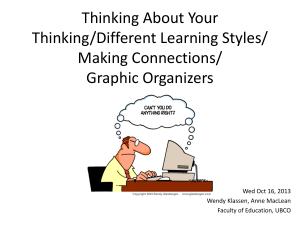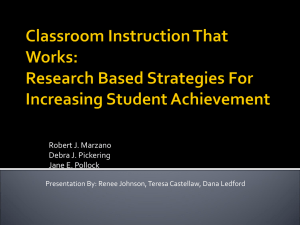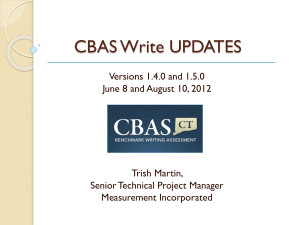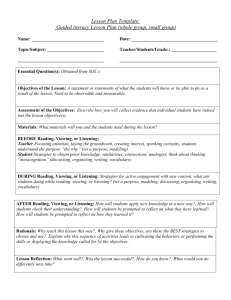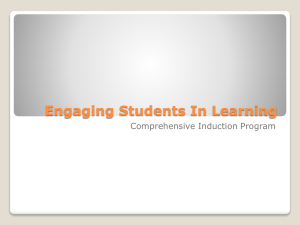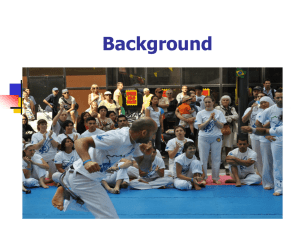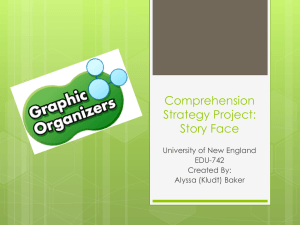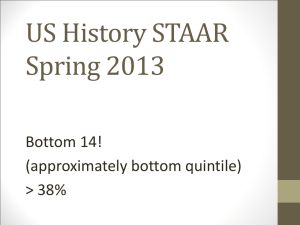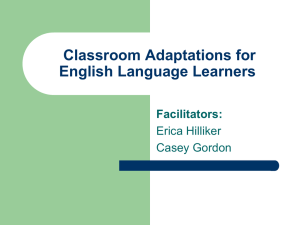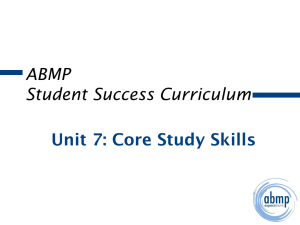Graphic Organizing
advertisement
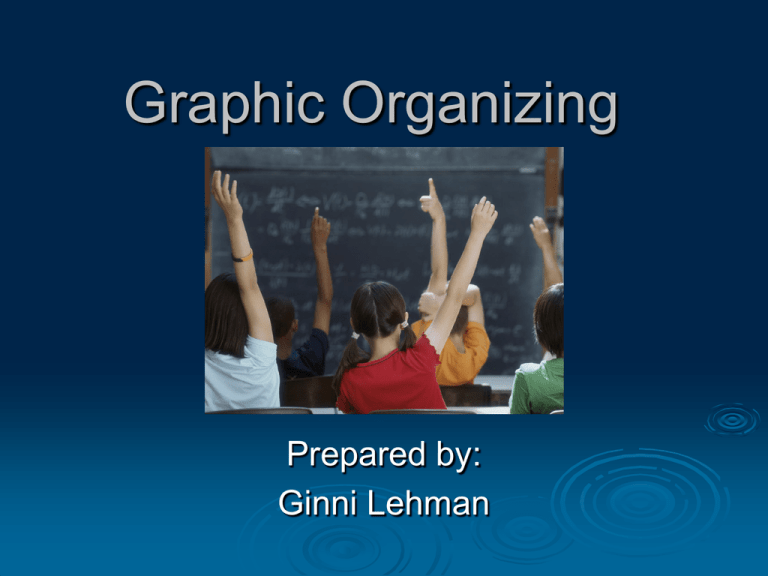
Graphic Organizing Prepared by: Ginni Lehman What Is A Graphic Organizer? A graphic organizer is a display that shows relationships between facts, terms or ideas involved in a learning task. Graphic organizers also refer to knowledge maps, concept maps, story maps, cognitive organizers, advanced organizers, or concept diagrams. There are several types of Graphic Organizers! Each is unique and different in their own way. Graphic Organizers You Can Use… Descriptive or Thematic Map (maps general information) Network Tree (reflects on subordinate and super-ordinate details) Spider Map (information relating to the main idea) Problem and Solution Map (for information containing a cause and effect) Try This Graphic Organizer! Problem/Solution Outline (helps when comparing different solutions to a problem) Sequential Episode Map (useful for mapping out cause and effect. Fishbone Map (for complex cause and effect relationships) Comparative and Contrastive Map (helps students compare and contrast two concepts) Compare and Contrast Matrix (helps when contrasting more than two concepts) Need Help Organizing, Give This A Try! Continuum Scale (effective for organizing information along a less/more, or low/high dimension. Series of Events Chain (helps when organizing information according to stages and steps. Cycle Map (useful for organizing information that is in a cycle (circular) with no positive beginning or ending. Human Interaction Outline (effective for organizing events in terms of a chain of action and reaction) Descriptive or Thematic Map Graphic Organizers Can Be Found … By visiting http://facultyfp.salisbury.edu/ddsessoms/G raphicOrganizers/Graphic_Organizers.pdf You can view examples of the Graphic Organizers listed in the previous 3 slides Using Graphic Organizers Helps Students … Organize information! Organizers are most commonly used in the following subjects, Science, Social Studies, Language Arts, Reading, and Math. Mapping cause and effect, note taking, comparing and contrasting concepts, organizing problems and solutions and relating information to the main ideas or themes are very helpful for students. Research Says! A study conducted by Boyle and Weishaar in 1997 reported that of 15 studies, 7 reported that graphic organizer use elevated comprehension levels. In 1984 a meta-analysis conducted by Moore and Readence suggested that gains in vocabulary knowledge following a graphic organizer use is even greater than gains in comprehension. Using Graphic Organizers In Class I am planning on teaching in the Early Childhood grade levels, and at this age I find that organization is key! When it comes time to study, if you have all of your information put together it helps you, you do not have to go rummaging through your book-bag for information. Providing graphic organizers for subject areas will help students prepare for tests and help them learn. Keeping information organized is very important and graphic organizers will help in this endeavor.

